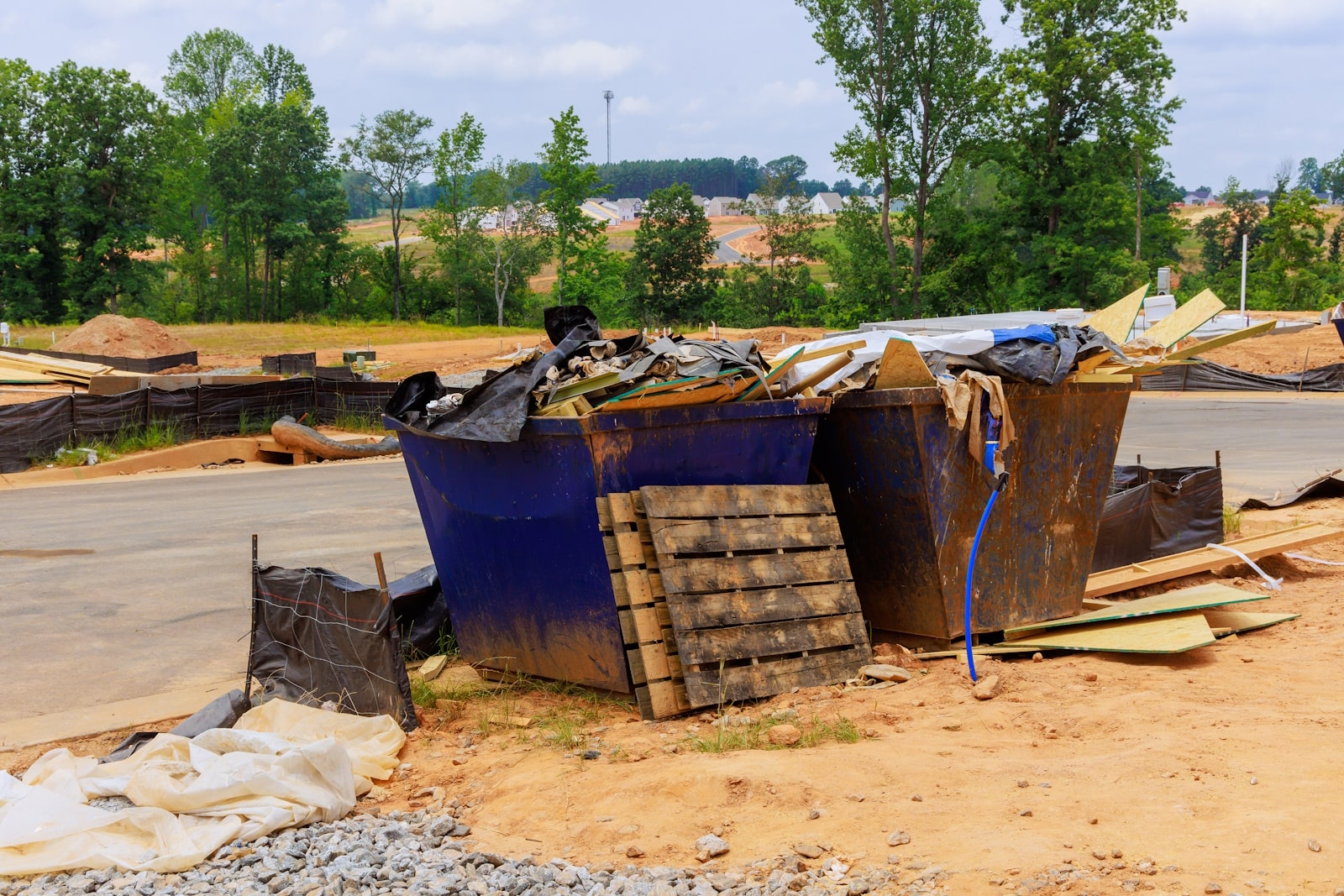Waste Management Company: Construction
As demand for new infrastructure rises, so does the strain on waste management systems. This has led to the urgent need for more sustainable practices in construction waste disposal, recycling, and minimisation. A waste management company plays a pivotal role in improving the industry’s environmental footprint by efficiently managing waste, promoting recycling, and facilitating waste reduction initiatives.
Overview of Waste in the Construction Industry
The construction industry generates a wide range of waste, from raw materials and demolition debris to hazardous waste. In South Africa, for example, the construction sector is responsible for significant amounts of non-recyclable waste being sent to landfills each year. This waste includes surplus materials, leftover products, and waste from demolished buildings.
The most common types of waste generated in construction projects include:
- Material Waste: This category consists of concrete, wood, bricks, metal, glass, and drywall—often discarded due to over-ordering, incorrect handling, or poor estimation during the planning phase.
- Demolition Debris: Materials like steel, concrete, and bricks from demolished structures are often sent to landfills despite being recyclable.
- Hazardous Waste: Asbestos, lead-based paints, and other harmful chemicals require careful handling and disposal.
- Mixed Waste: A combination of various materials that are challenging to separate for recycling.
The environmental impact of this waste is immense, leading to increased landfill use, soil contamination, and air pollution, thus contributing to the construction industry’s carbon footprint.
The Need for Sustainable Waste Management in Construction
Sustainable waste management practices are crucial in the construction industry to reduce its ecological footprint. By adopting green building principles and waste reduction practices, the construction sector can significantly lower its impact on the environment.
A waste management company helps reduce the reliance on virgin materials, which supports the shift toward a circular economy. In South Africa, government regulations such as the National Environmental Management: Waste Act are designed to encourage construction firms to adopt more sustainable practices. This legislation promotes reducing waste sent to landfills and increasing recycling efforts within the industry.
Types of Waste Produced in Construction Projects
The various types of waste generated in construction projects pose unique challenges regarding disposal and recycling:
- Material Waste often arises due to miscalculations during procurement. Excess materials like wood, concrete, and insulation often end up in landfills despite being recyclable. A waste management company can advise on better procurement strategies to avoid surplus materials.
- Demolition Debris from older buildings contributes a significant portion of construction waste. Materials like concrete can be crushed and reused for new construction, reducing the need for new materials and lowering costs.
- Hazardous Waste includes substances like asbestos, lead-based paints, and solvents. These materials require special handling and disposal, which is where a waste management company becomes indispensable.
- Mixed Waste consists of various materials that are difficult to recycle. A waste management company can assist by deploying advanced sorting techniques to identify and separate recyclable items.
Waste Minimisation Strategies on Construction Sites
To reduce construction waste, several strategies can be implemented during planning, procurement, and construction phases:
- Planning and Design: Sustainable design practices, such as modular construction or designing for disassembly, can help reduce waste. Accurate estimation of material needs ensures fewer excess materials are ordered, reducing waste generation. A waste management company can support this process by advising on design choices that minimise waste.
- Procurement and Material Selection: By opting for sustainable materials made from recycled content, construction companies can help reduce the volume of waste produced. A waste management company can offer recommendations on sourcing materials that are environmentally friendly and reusable.
- Construction Methods: Precision in material cutting and using techniques that minimise offcuts, such as Lean Construction methods, can reduce waste. A waste management company can also assist in creating more efficient waste diversion plans on-site.
The Role of Recycling in Construction Waste Management
Recycling is central to sustainable construction waste management. Many construction materials—such as concrete, wood, and metals—can be recycled or repurposed, reducing the amount of waste sent to landfills.
Recycling concrete, for instance, saves both raw materials and energy. Similarly, metals like steel can be melted down and reused in future projects, reducing the need for mining. A waste management company can play a key role in the sorting and processing of recyclable materials.
Innovative Technologies for Waste Management in Construction
Technology is revolutionising waste management in the construction sector. AI and machine learning are now being used to enhance waste sorting, making it faster and more accurate. AI-powered systems can identify and separate recyclable materials from waste, streamlining the entire process.
Automated recycling systems are also being employed on construction sites, allowing for the quicker and more efficient recycling of specific materials. A waste management company that adopts these technologies can offer advanced solutions that reduce costs and improve recycling efficiency.
Challenges in Implementing Sustainable Waste Practices
Despite the advantages of sustainable waste management, several challenges exist:
- Lack of Awareness: Many in the construction industry are unaware of the benefits of waste minimisation. Training and awareness campaigns are essential to overcome this obstacle.
- High Upfront Costs: Although adopting sustainable waste practices and technologies can reduce long-term costs, the initial investment required can be a deterrent. However, government incentives and the long-term environmental and economic benefits often justify the initial costs.
- Limited Recycling Facilities: In some regions, a lack of recycling infrastructure makes it difficult for construction projects to recycle materials. Expanding recycling infrastructure is essential for improving waste management practices in the sector.
Conclusion
Sustainable waste management practices are critical for reducing the environmental impact of the construction industry. By working with a waste management company, construction firms can implement effective strategies to minimise waste, recycle materials, and incorporate innovative technologies that reduce their carbon footprint.
If you’re looking to improve the sustainability of your construction projects and reduce waste, get in touch with us at A-Thermal. Our expertise in waste management ensures that your project meets environmental standards while minimising costs and optimising resources.







